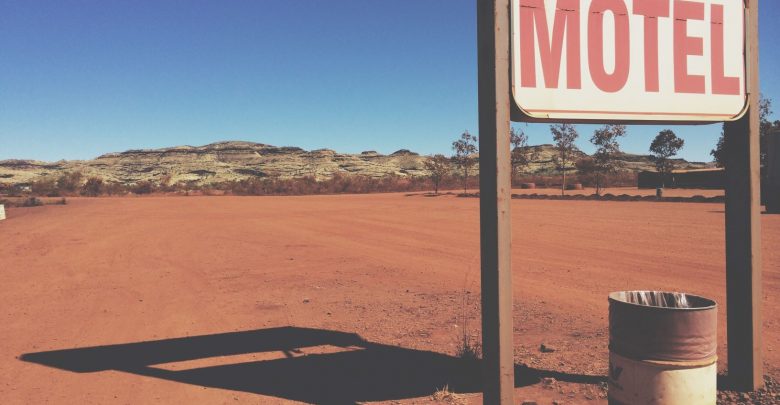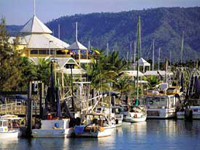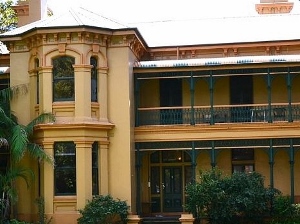
Airbnb killing country accom, report suggests
A new report shows Airbnb has swallowed up the profits generated by Australia’s regional tourism boom, leaving scraps for struggling motels and pubs.
Data from IBISWorld says the weakened Australian dollar has made domestic travel more desirable and also stimulated overseas tourist interest in the bush – but motels have seen few of the spoils as short lets have enjoyed significant growth.
Domestic visitor nights have mushroomed over the past five years as the “rising popularity of self-drive holidays has encouraged domestic travellers to visit regional Australia,” according to IBISWorld senior industry analyst Yin Yeoh.
“International travellers have expressed a similar interest in visiting regional areas, with international visitors indicating a desire to spend an average of six nights of a 14-night trip in regional Australia.”
But despite Tourism Research Australia figures showing a 29 percent rise in visitor nights spent in regional areas in the five years to 2018, motel operators have seen little benefit, says IBISWorld.
“The motels industry is anticipated to record subdued revenue growth of 1.4 percent in 2019-20,” the research states.
More than half of all regional travellers choose to stay in private holiday rentals compared to 19 percent spent for hotels and motels, according to the data.
“Tourists have increasingly opted for private holiday rentals offered through sites like Airbnb due to the practical benefits they offer, as they are usually lower in cost, pet friendly, better located and furnished with household amenities,” said Ms Yeoh.
“Airbnb has made it much easier for consumers to find larger and more luxurious rooms in regional areas compared with what motels offer at a similar price.”
IBISWORLD says OTA commission rates of 25-30 percent are compounding the issue as motel operators resort to listing more inventory on the booking sites to try and compete with private holiday rentals.
“While Airbnb has been great for consumers and regional economies, motels and hostels in smaller remote areas are feeling the brunt of the sharing service’s success,” said Ms Yeoh.
“As a result, some motel operators in regional Victoria have exited the industry as operators cannot cope with the strong competition from private holiday rentals listed through online platforms, such as Airbnb.”
The research highlights the YHA backpackers’ hostel and apartments in Foster, Victoria, which closed after 15 years citing an inability to compete with the rise of private holiday rentals offered through OTA sites. It points out motel operators in other parts of regional Victoria, such as Beechworth, are reporting similar struggles.
“Several accommodation providers in the Bed and Breakfast accommodation industry have been unable to cope with the increased competition from accommodation offered through online platforms and have exited the industry,” said Ms Yeoh.
“This trend is not particularly surprising, as a Google search for motels in Beechworth returns 57 results, while a search for accommodation in Beechworth on Airbnb returns over 300 results.”
According to IBISWorld, hotel operators also face significant competition from short stays but have managed to maintain revenue growth over the past five years by moving away from owning property towards management arrangements.
The report says that “following criticism from parts of regional Australia due to the growing number of properties providing short-term rentals” Airbnb has expanded its listing offerings to include boutique hotels and bed and breakfasts.
The short-stay giant also recently concluded a competition which invited rural Aussie pubs to apply for a 50,000 grant to fund upgrades, an apparent effort to ingratiate itself with country communities which are often antagonistic.
In the WA community of Margaret River, for example, local accommodation owners have described the company as a “corporate bully” following a proliferation of unregistered Airbnbs which they say are negatively affecting local motels and guest houses.

AccomNews is not affiliated with any government agency, body or political party. We are an independently owned, family-operated magazine.








Thank you for reporting on this new study, yet they are not telling a complete story.
Airbnb charges 3% commission to listing hotels/pubs/homes/treehouses/etc, compared to the much higher OTA rates, therefore the above study by IBIS world is misleading. 97% of the rental revenue is going into the pockets of people like you and me (home owners).
The report may be inferring that Australian home owners, who choose to rent their home, are the enemies and ‘killing country accommodation’.
Unfortunately ,Byron, you are not telling a complete story either. Yes,Airbnb charges ,until recently were only 3%, but you forgot to add that they charge the guest a further 6%. They have now raised their commission to 14%, in line with most OTA’s and continue to charge the guest 6%.
I will assume that you are registered for GST and declare your rental revenue, that your property is correctly and adequately insured,Council approved and adheres to Fire Safety regulations. If you say no to any of these conditions, then you ARE killing country accommodation , which is generally operated by Mum and Dad owners ,people just like yourself who must comply to those conditions.
I understand the frustration of hotel motel owners. I personally have had experience in both. Born into a family of 3 generations of hoteliers, my wife and I had our first motel at 23 and in total had leasehold or freehold of 2 motels, hotel, caravan park and serviced apartments over a thirty-year period. so, in my (nearly) 60 years I have seen a dramatic change of the lifecycle of accommodation (motels). Don’t jump up and down if the dates overlap – this is my account through my eyes of the changes.
When my parents in the 60’s let the 14 or so rooms out in our “pub” to travelling salesmen, road crews, drilling and shearing contractors etc. we had people in every night of the week, then in the 70’s the rooms were vacant- the motels took over. Motels were the best new thing and in the 70’s all the motels were new. The eighties bought change where a new motel becomes the second best after the “new” kid on the block builds a nicer bigger motel. this pushes the older style property down to the second level of standard and pricing. Then the second level became the third level etc the lower you went the lower the price. If you were a leasehold the rental was fixed to a ratchet clause, so costs went up. Eventually the bottom dwellers disappeared or remerged into other uses (nursing homes, redevelopment, emergency accommodation etc)
Then in the nineties the bigger companies (the Sheratons four points and Accor etc) set their sights on the profits in the outer regions. (Even though Travelodge had already established themselves in some country areas) the rest were basically motels. This put pricing and marketing pressure on the better motels in town, which in turn puts pressure on the lower level motels and so on.
Also, in the nineties we saw the rise of serviced apartments and as the years rolled into the 2000’s their stronghold only solidified. Motels saw this and started adding serviced apartments either on site or in offsite locations to their inventory. This sparked the strengthening of the serviced apartment/corporate apartment sector, which really was helped immensely by the working visa influx of professional overseas contractors and employees that flocked to our shores. This ran hot in the late nineties and over the decade of 2000. Then 2010 came and we have already navigated wotif and expedia and the plethora of newcomers in the OTA market. This created an even playing field for marketing. If you searched by price then as long as your price was better than Mr four points and Mr Ibis then you would appear on the page first in that location.
This leads me to Airbnb. It was inevitable that this would be a natural evolution. Exactly who wouldn’t want a few extra bucks for something that doesn’t really cost you anything. We call it the dead room rate. Mr and Mrs jones need an extra 40 dollars to go out for tea so they put their room on Airbnb for 45.00 and there you go. Done.
Sophistication then spread throughout the BnB market and as everyone is on the same level playing field when it comes to marketing it was a no brainer. I could be in the backblocks of Pescara. Italy and see that Mrs jones has a room spare on the beach at Moggs Creek and book it. After 20 glossy photos and picture of her cat and the description of what I am going to get for breakfast for 55.00. Its done, booked and my holiday has begun.
So motels, Yes it is hard to see your investment, your self-worth, your dignity and your hopes and dreams for your family being attacked from a seemingly unstoppable force, but if your business is failing then you have to re-invent, re develop or change the way you do business or maybe walk away. In our pub I couldn’t stop the supermarkets coming into the game and selling alcohol. In fact, I could buy bottled beer cheaper from Coles a dozen at a time, than I could buying 4 pellets of CUB direct from the brewery on my account! The government weren’t going to protect me, and they are not going to change things and protect you either.
So, no matter what commissions are, what regulations you have to abide to, what protections you offer (innkeepers act) etc I don’t believe the home based “rent a bed” market is going to disappear. In fact, they will become more sophisticated and they will (and have) evolve into more specialised niche, boutique stays that offer an experience of different sorts that appeal to a wide market. So instead of searching a bed/room somewhere, the punters are now searching for experiences. Therefore ask yourself- what’s the next thing? – The question may be – What’s the next thing for you.
I totally agree Paul, it is always a challenge. We have seen many changes in our 20 years. We have apartments and an A B and B. Go with the flow and be creative. Penny